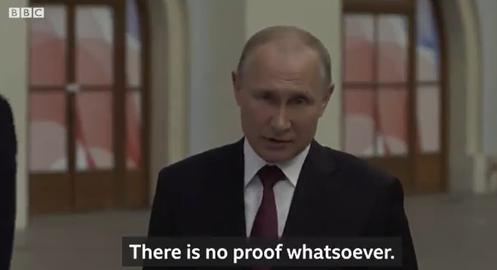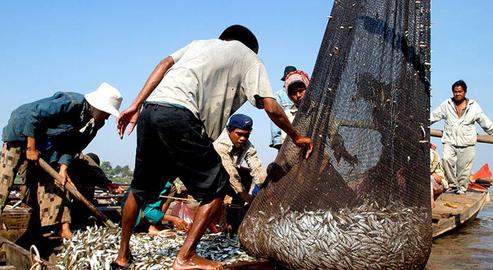Emil Filtenborg and Stefan Weichert are independent journalists based in Ukraine. In a weekly series for IranWire, they examine the landscape of disinformation in Russia and some of the false information that has emanated from the country since the outbreak of coronavirus.
On this day, a full six years ago now, Malaysia Airlines Flight 17 (more commonly known as MH17) was shot down over Eastern Ukraine: a territory occupied by Russian backed separatists that had been at war with Ukraine since March 2014. Since then, the conflict has been frozen in place. But families of the 298 victims aboard the plane now see closure on the horizon as a court case in the Hague gets underway.
On July 4, 2020, judges in the trial of three Russians and a Ukrainian accused in absentia of shooting down MH17 allowed the defense lawyers time for further investigation. The lawyers have long been challenging the commonly-accepted view that the plane was downed by a Buk missile fired by these four men.
Russian disinformation has been clouding the case since the shooting and is now on the increase. In an article by RT, formerly known as Russia Today, a wide array of misleading statements are deployed in an attempt to shift the narrative. First and foremost, the article states that Almaz-Antey, an arms manufacturer, could speak at the hearing on Friday the 4th of July.
That is correct, but the article fails to mention that the Russian state owns Almaz-Antey – and RT. According to Almaz-Antey, the missile used to shoot down MH17 was an older model no longer in use in the Russian army. Meanwhile, the company asserts, the Ukrainians still have plenty of them because they were inherited after the collapse of the Soviet Union.
The arms maker is cited as believing that the missile had to be fired from territory controlled by the Ukrainian government to inflict the kind of damage seen on the wreckage. This argument, however, has already been debunked by the investigative journalism network Bellingcat, which has shown the missile had to have come from the Non-Government Controlled Area, also called the NGCA. That position is echoed by the Joint Investigation Team (JIT).
In addition, Bellingcat used open-source information and several innovative techniques of reporting and social media monitoring to piece together the events that led up to the downing of the plane. The four men charged with downing MH17 and connected to one another – and to the incident itself – by wiretapped phone calls, in which voices identified by forensic experts as being the men on trial are heard. A detailed report of Bellingcat’s findings can be found here.
Russian Protestations Against Airing of Case in Court
While the court still must decide whether the four pro-Russian men standing trial are guilty of shooting down the plane, evidence of pro-Russian forces’ involvement is abundant. And this is not the first time that the Kremlin has been on the defensive ahead of the trial.
In March, the Russian envoy to the European Union, Vladimir Chizhov, directed a harsh critique at the handling of the case. "An attempt by a group of nations to determine the cause of MH-17 tragedy has very fast degraded to an attempt to manipulate all conclusions in compliance with pre-determined parameters,” Chizhov told the Russian news agency Tass.
Last year President Vladimir Putin also denied Russian involvement, claiming all evidence in the case was fabricated. In February, the spokesman for the Russian president, Dmitry Peskov, claimed that the trial itself was being “rushed” and not based on a “serious approach:”
“Russia has been denied the right to be a member of the Joint Investigation Team,” Peskov said. “Therefore, we have always been skeptical and mistrusting the rushed conclusions and rushed conclusions that are not based on a serious approach.”
The trial is currently in the preliminary stage and has now been adjourned until August 31. In the meantime, the Dutch Government has decided to sue Russia directly through the European Court of Human Rights to “achieve justice” for the friends and families of the 298 victims. The Russian Foreign Ministry has immediately portrayed the new case as a hindrance to finding truth and justice, stating it will “only lead to further politicization and make the search for the truth more difficult.”
Channels of Disinformation Outperform Established Media
As previously reported by IranWire, social media has been a cornerstone in the spread of disinformation, both during the coronavirus pandemic and in the years preceding it. A new study by the Internet Institute on Oxford University was published last month, examining the distribution of coronavirus (Covid-19) news and information originating from media outlets backed by the governments of China, Iran, Russia, and Turkey.
The Russian media outlets the study appraised were the state-controlled RT and Sputnik channels, which both have a long history of spreading disinformation primarily aimed at Western countries. According to this memo, their channels in French, German or Spanish have had some success.
A key finding of the study is thate outlets from China, Iran, Russia, and Turkey, in either French, German, or Spanish, reach “tens of millions of social media users around the world”: and at least in terms of reach, they are simultaneously outperforming some of the most well-established domestic media outlets in France, Germany and Spain, including Le Monde, Der Spiegel, and El Pais.
“Russian outlets,” the report observes, “working in French and German consistently emphasized weak democratic institutions and civil disorder in Europe but offered different kinds of conspiracy theories about the pandemic.”
Also in this series:
Missing Data, Mud-Slinging and “Miracle Cures”: Why Disinformation Is Bad For Your Health
Iranian Online Network Still Peddling Coronavirus Disinformation
Putin’s Domestic Problems Eclipse Russian Disinformation Campaigns
China's Campaign to Protect President Xi against Coronavirus Criticism
Chinese Embassies Work Overtime to Diffuse International Fury Over Coronavirus
Russia Bans Coronavirus "Fake News" and Slams US Over Press Freedom
China Blocks Investigations Amid Refusal to Shut Down Wet Markets
From Coronavirus to the Second World War: On the Frontlines of the Russian Disinformation Battle
Russia Blames West for Propaganda While Reporting Unlikely Number of Covid-19 Deaths
As Criticism of China Falters, Time for a NATO for Human Rights?
Guest Post From Russia: How do You Put the Brakes on a Fake News Machine?
Has China Really Given Assent to a Global Coronavirus Review?
Russian Disinformation Back to Targeting Ukraine as Putin Declares Covid-19 Peak has Passed
Will the Post-Coronavirus World Stand Up to China's Bullying Business Tactics?
Coronavirus: An Opportunity to Advance Russian Interests in Latin America
The Shi Zhengli Identification Criteria: How Do We Know Where Coronavirus First Emerged?
Covid-19 and Black Lives Matter Unrest Targeted by Russian Disinformation
Occupy First, Talk Later: China Turns Border Conflict Into PR Opportunity
China Deploys Coercive Tactics to Deal with Disinformation Accusation
Putin Tries to Rewrite War History to Assert Russia's Position on the World Stage
Behind the Smokescreen: What are China’s Anti-EU Pandemic Narratives Really About?
Kremlin Has the Upper Hand as Covid-19 Puts Independent Media Under Pressure

























comments